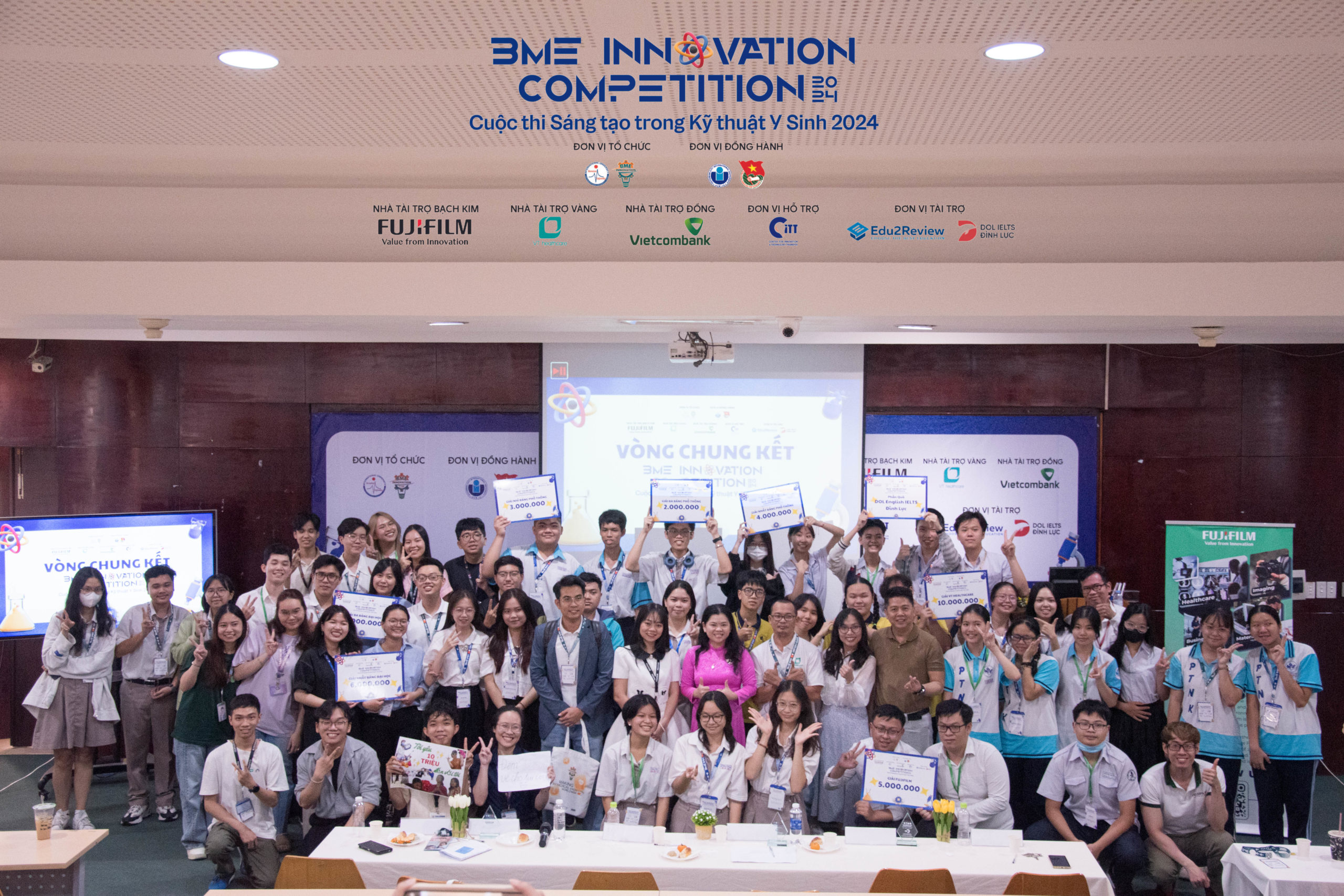
ARTIFICIAL BASILAR MEMBRANE AND SPERMONE – MICROFLUIDICS-BASED ASSISTED REPRODUCTIVE TECHNOLOGY SUCCEED THE BME INNOVATION 2024 COMPETITION
After a period of vibrant competition, BME INNOVATION journey has officially ended successfully with countless emotions not only for the teachers, the judges, the contestants but also for the BMEIC Organizing Committee. After a tireless and diligent journey, it was true that all of those results are worthy of pride.
The BMEIC24 Organizing Committee would like to send thesincerest gratitude to the teachers, the judges and especially the sponsors who have accompanied and supported us throughout the competition. The Committee gives the words of gratitude to the participating teams and for showing many wonderful products along with your tireless efforts and excellent performance in the team’s competition.
Without any longer hesitation, let’s take a look back at the teams that won the prizes in the Final round as well as the great moments from the competition!!!

The first prize of the University Board belonged to team SpermOne with the topic “ SpermOne – Microfluidics-based assisted reproductive technology”. The idea of the topic revolves around the global health problem of infertility, which affects millions of people of reproductive age worldwide. Standing out in the new research trend to solve the current infertility situation, the microfluidic microselection chip is especially suitable for clinical application in sperm sample preparation thanks to its high efficiency. Microfluidic selection methods are based on sperm motility, swimming downstream, upstream, through long channels or through membranes. “Our team comes up with the SpermOne chip that applies microfluidic techniques to achieve the goal of selecting sperm with good motility, high sperm stability and recovery efficiency”. The SpermOne chip is manufactured based on the sperm swimming mechanism and physical filter to select sperm shape while overcoming the disadvantages of previous research chips. The research was conducted with the desire to apply biomedical techniques to clinical products to reduce work pressure for embryologists, avoid errors or limit the loss of patient sperm samples, contributing to saving costs and reducing economic pressure for many couples.
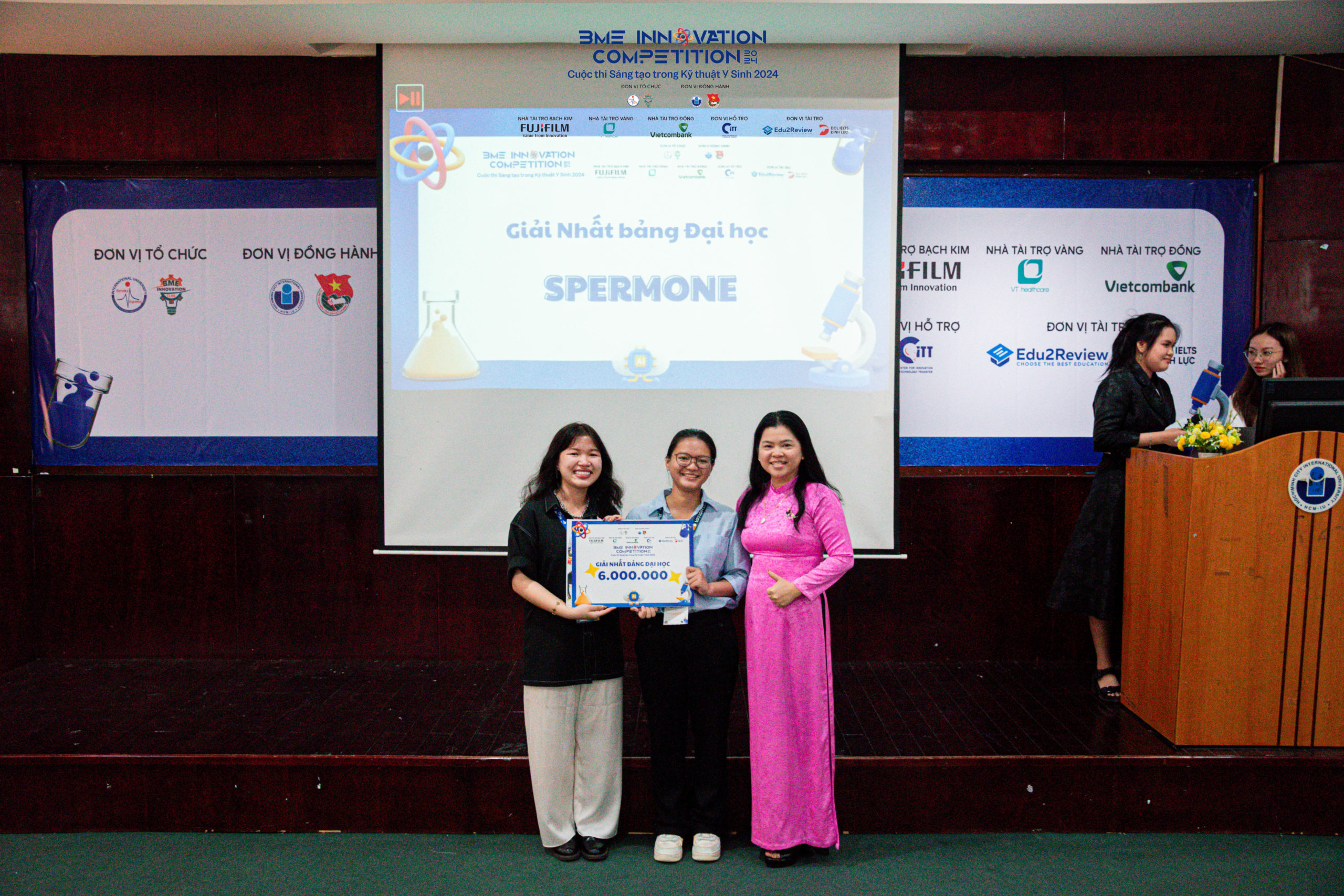
The second prize in the University Board went to team 3DBP with the topic “3D Biological Printing System Applied in Tissue Engineering & Regenerative Medicine”. The idea of the topic is about the manufacture of a biological 3D printing system based on the extrusion principle, with the ability to self-mix and self-supply materials – focusing on the field of bone – cartilage regeneration. It provides the ability to print bone – cartilage effectively and the ability to print scaffolds for research and education in the field of biomedical materials.

The third prize in the University Board went to team Stormy Petrels with the topic “Preparation Of Protein Nanoparticles Made From Chicken Eggs Used To Reduce The Inflammation Of Ulcerative Colitis”. Ulcerative colitis is a chronic inflammatory disease of the colon caused by multiple factors. The conventional treatments often cause significant side effects and do not provide lasting pain relief. In recent years, the interest in nanocarriers for drug and pharmaceutical delivery systems has increased, with proteins being recognized as ideal materials due to their low toxicity, solvent interaction, and bioactivity. In the pursuit of innovative solutions for the management of ulcerative colitis, a unique approach has been studied by exploring the therapeutic potential of protein nanoparticles derived from chicken eggs – a natural and cost-effective material through the preparation of specialized nanoparticles with unique advantages. In addition to being a source of essential nutritional value, eggs also contain a number of proteins and peptides with therapeutic properties, including antibacterial and immunomodulatory components (including lysozyme, avidin, ovalbumin, and ovomucoid). This suggests that eggs may serve as a valuable source of natural bioactives for clinical applications. With the advantages of using natural ingredients (fresh chicken eggs) and easily accessible chemicals, research on the production of protein nanoparticles from chicken eggs to reduce ulcerative colitis is being conducted with the promise of stable, easy-to-implement, and highly commercializable results as expected.
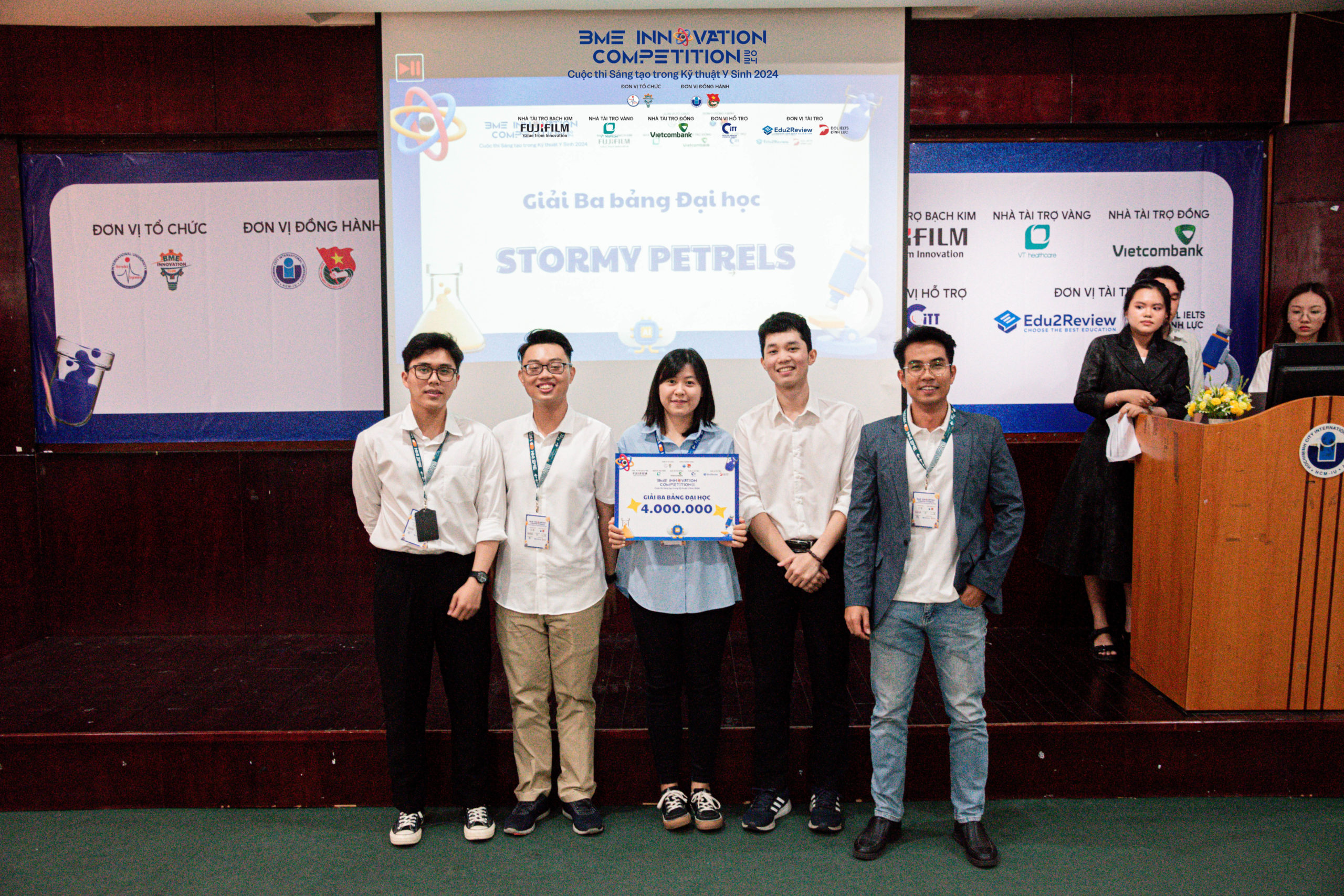
The first prize in the High School Board went to team p=Tnk with the topic “NANOHEAR: Artificial Basilar Membrane For Sensorineural Hearing Loss”. The project used advanced nanomaterials to accurately model the hair cells in the cochlea. This project aimed to address the root cause of hearing loss by reproducing the complex structures needed for sound perception.With the correct use, nanomaterials mimic the natural function of hair cells, providing a promising approach to hearing restoration.
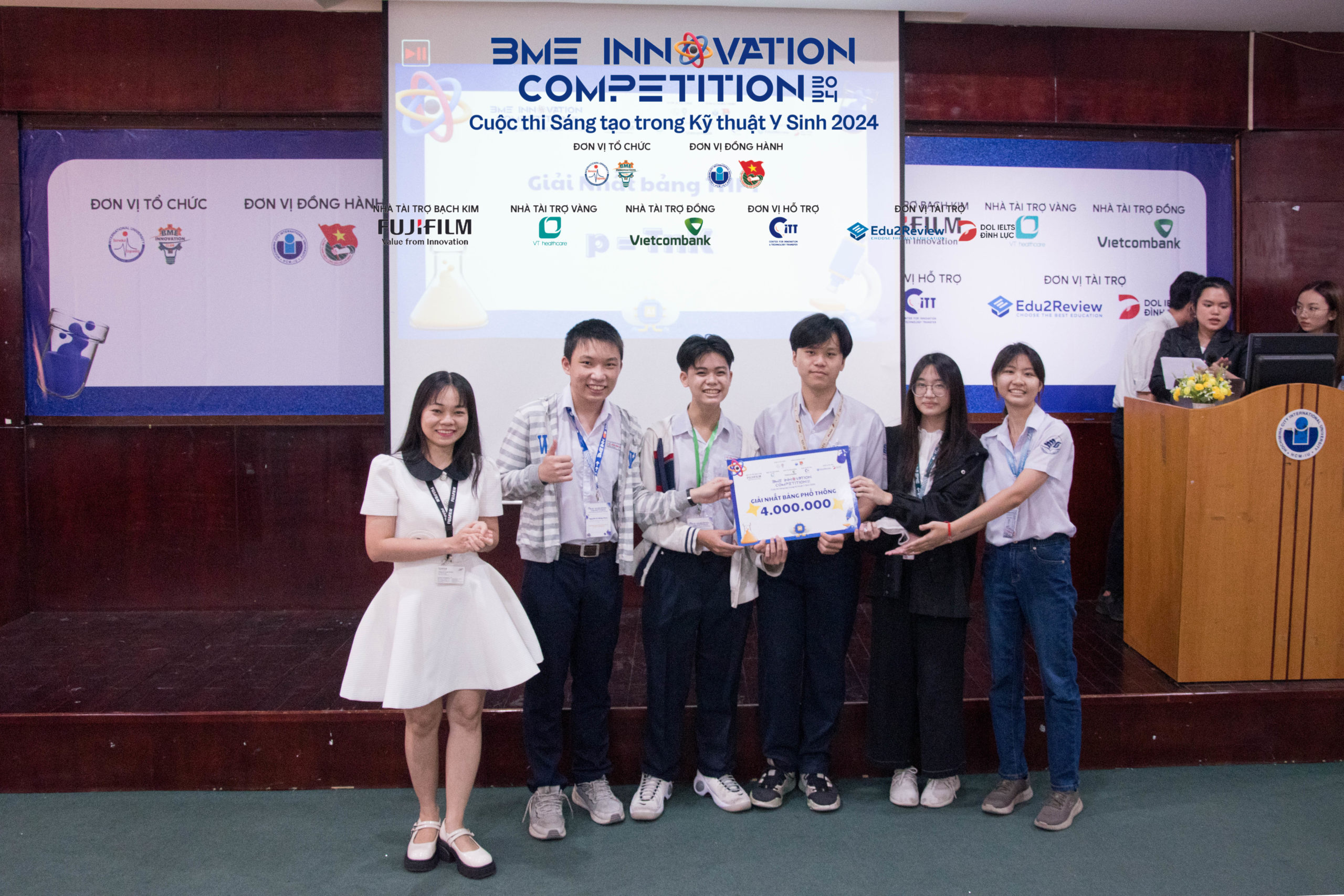
The second prize in the High School Board went to team Neurones with the topic “Wearable Device with Early Stroke Risk Prediction Function”. The idea of the topic is to create a biochip (highly adaptable to the human body) that stores and processes information to replace the brain area damaged by compression by blood vessels to restore movement and memory of people after a stroke.
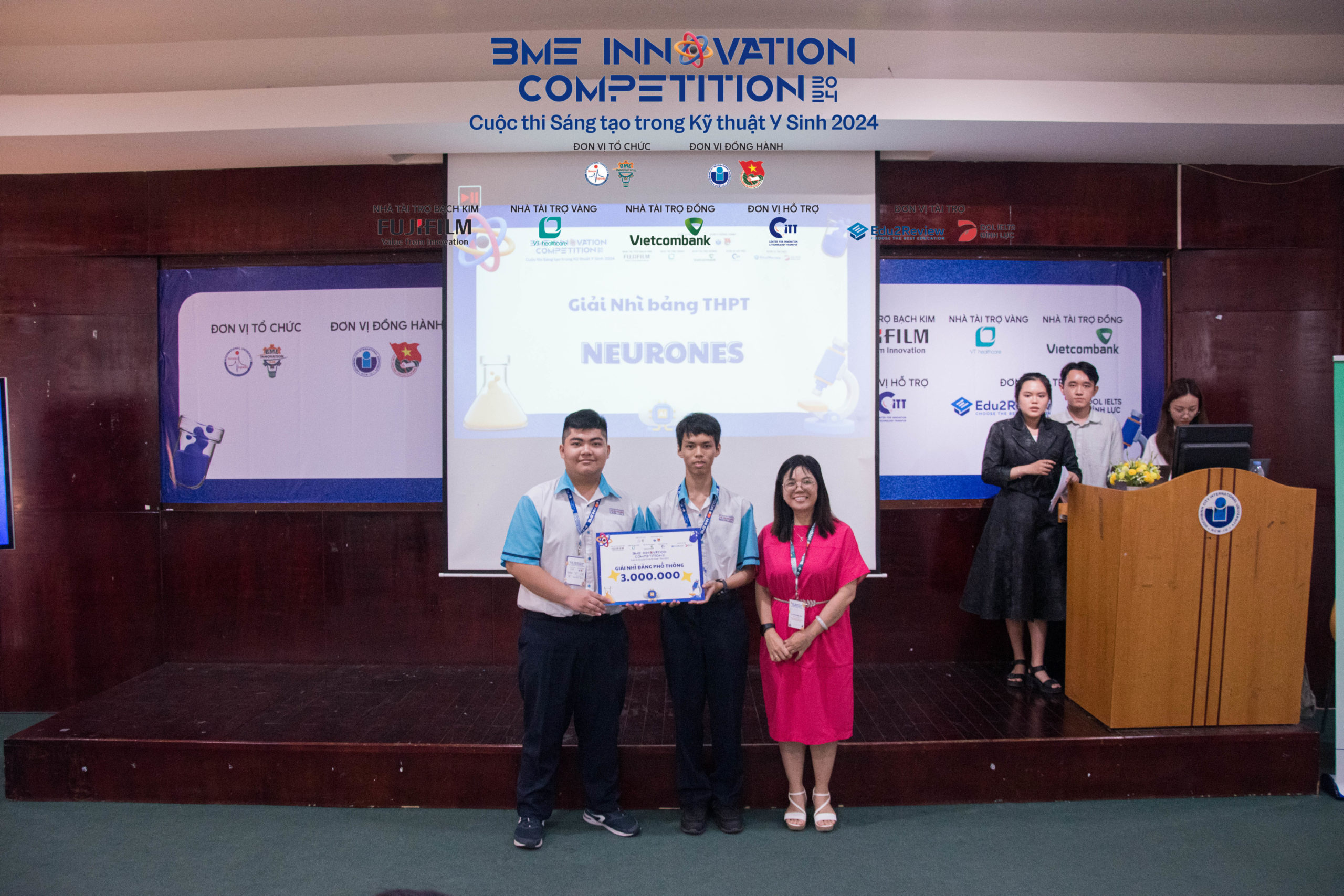
The third prize in the High School Board belonged to team Cation with the topic “Breast Reconstruction After Breast Removal Surgery in Breast Cancer Treatment Using 3D Printed Bio-Scaffold Model from Polylactic Acid (PLA) and Gelatin”. Currently, breast cancer is a common disease in women around the world, after having to remove the breast, it leads to many mental consequences such as low self-esteem and depression. Therefore, it is urgent for the need to reconstruct and restore the shape of the breast after surgery in women. The aim is to create a patient-oriented scaffold model for breast tissue regeneration by combining 3D printing technology with biodegradable, highly compatible polylactic acid (PLA) resin and encapsulated with anti-inflammatory gelatin. The model includes two independent structural components, the outside provides biomechanical stability to minimize the transmission to newly formed tissue while the inside structure provides a fully interconnected hole to facilitate tissue regeneration.
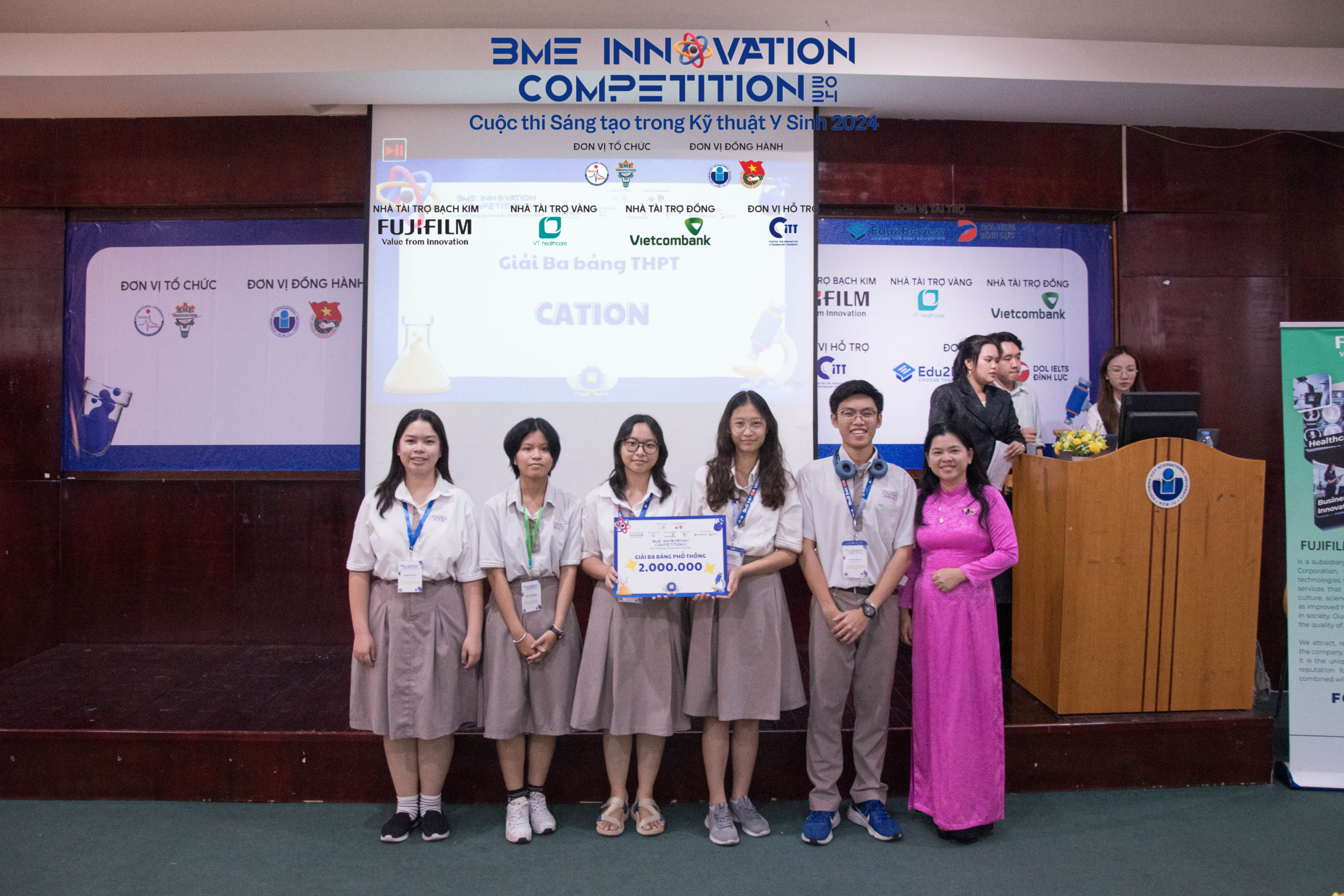
Fujifilm Sponsor Award in University Board was awarded to team BMIUT for the topic “Applying Explainable AI to detect sEMG-based prosthetic hand for amputees in real-time movement”. “By integrating XAI into the control of prosthetic hands using sEMG signals, we can achieve more intuitive, efficient and user-friendly prosthetic solutions”. The transparency brought by XAI can bridge the gap between users and technology, making the future of prosthetics more promising and more accessible to amputees.

VT Healthcare Sponsor Award in High School Board was awarded to team LHP-CKMNT for the topic “Software system for diagnosing melanoma”. Melanoma is a malignant disease that often progresses rapidly, causing early metastasis and a high risk of death. Early detection will increase the effectiveness of treatment and improve the prognosis. The “Skin Melanoma Diagnosis Software System” was researched and created with the aim of warning, propagating, detecting malignant changes on the skin and early treatment to prevent cancer from spreading.
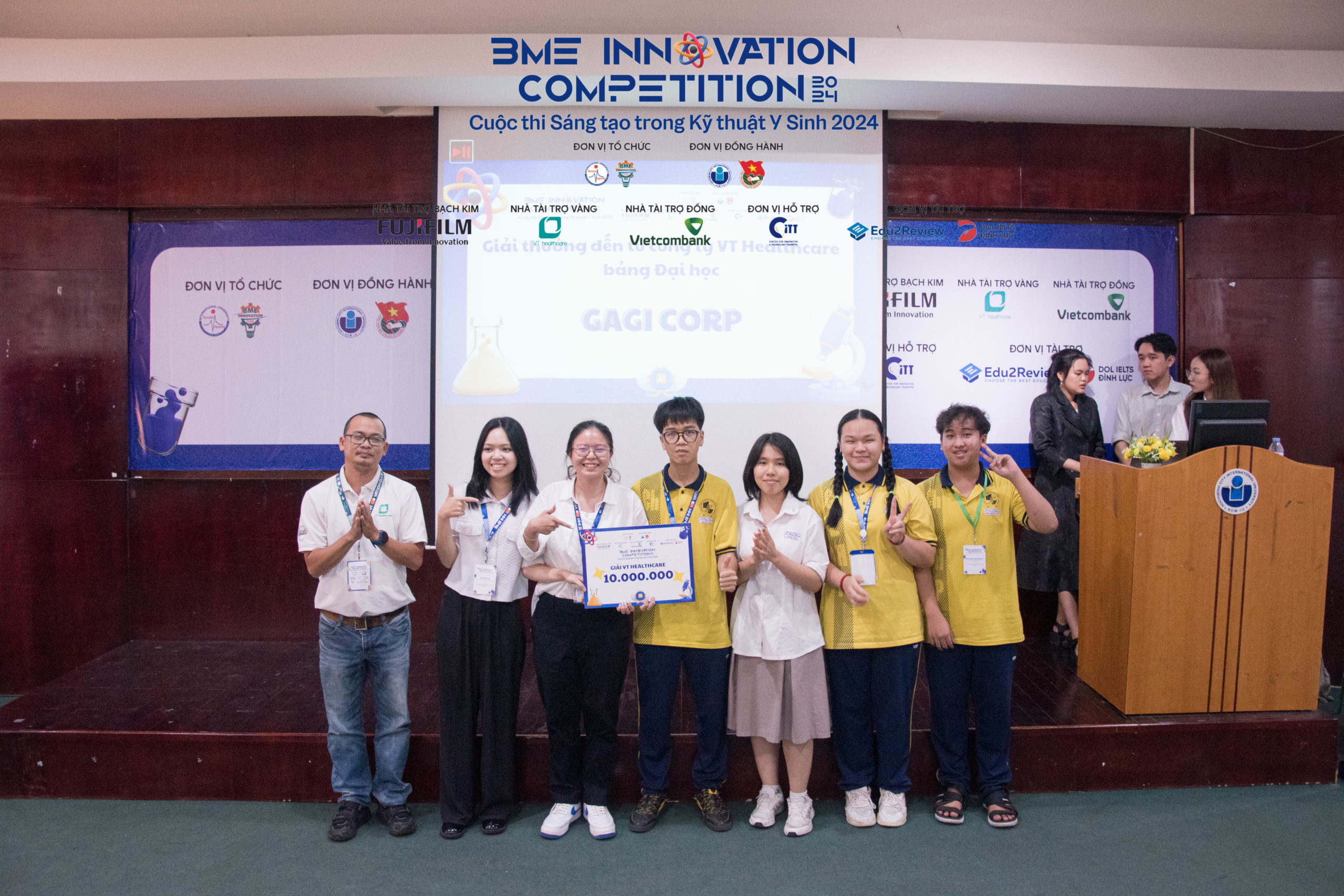
VT Healthcare Sponsor Award in University Board was awarded to team Gagi Corp with the topic “A Computer Vision-based Serious Game System for Training Squat Exercises Toward Smart Gym”. The idea revolves around developing a serious game to guide squat exercises based on the body movements of the practitioner combined with computer vision technology. The game not only stimulates interest and perseverance in training, but also supports the development of healthy living habits. The game can also provide advice on training regimens, guide exercise steps, and monitor health status, helping practitioners feel excited and enjoy each workout session.